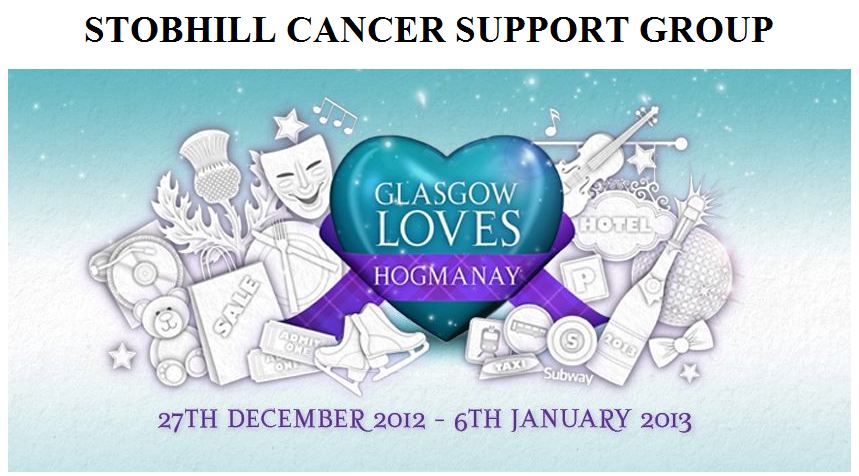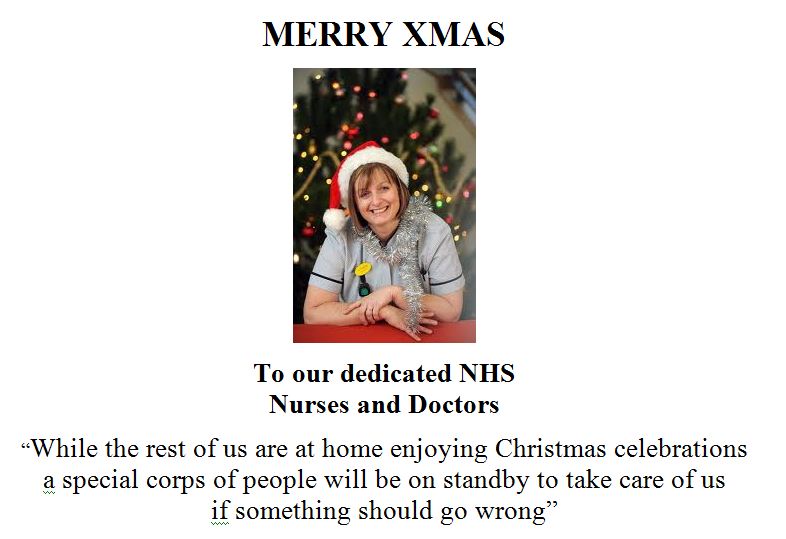Want to know how old you really are? Then join the queue Old is when… ‘getting a little action’ means you don’t need to take any fibre today.
A controversial lifespan test that claims to tell people how fast they are ageing will be taken by thousands next year. More than 100 Britons have now taken a revolutionary blood test to see how fast they are ageing, and which might be used in the future to indicate statistically how long they have got left to live.
The company behind the "lifespan" test believes ten times as many people in the UK will take the £650 blood check next year, and millions more worldwide will be tested by the end of the decade. http://www.independent.co.uk/news/science/want-to-know-how-old-you-really-are-then-join-the-queue-8432292.html  (WCRF UK) is part of a global network of charities that are committed to preventing cancer. We fund cutting edge cancer research and provide people with the information they need to reduce their cancer risk.
Types of cancer
There are many different types of cancer, but this section looks at the 14 types of cancer where there is some evidence that risk is affected by diet, physical activity and weight. For each type of cancer, we explain which lifestyle factors are related to this type of cancer and how they relate to our 10 Recommendations for Cancer Prevention. It is important to emphasise that these Recommendations, which come from our Second Expert Report, are a package of measures that can reduce your risk of cancer overall, rather than any being especially targeted at any specific type of cancer.
http://www.wcrf-uk.org/cancer_prevention/types_of_cancer/index.php

 Touted as the must-have procedure of the future, this treatment, called Macrolane, does not involve the insertion of implants. Instead breasts are plumped up with injections in an hour-long appointment. The effects are less dramatic than conventional breast implants - increasing breast size from between half to three-quarters of a cup size - and the effects will only last for two to three years - rather than the usual ten to 15.
What are the advantages?
The procedure is far less invasive as it involves a series of injections rather than cutting of the skin. It is carried out under local – rather than general - anaesthetic and takes a fraction of the time to have carried out and to recover from. The effects are more subtle, which many women prefer.
What's involved:
Hyaluronic acid, a substance already used as a wrinkle filler in other procedures, is injected below the breast. Hyaluronic acid is a substance which naturally occurs in the body to plump out our skin. For these purposes it is made artificially. The procedure can be completed in a one hour visit.
How long does it take to recover?:
A few hours at most. Theoretically a patient may not even have to take the afternoon off work.
When is it available?:
Should be available in the UK between 2004 and 2005.
Cost:£2,000 - £2,500
PROTON THERAPY
Physicians at the Proton Treatment Center at Loma Linda University & Medical Center in southern California are keeping a close eye on a promising clinical study designed to treat patients using proton therapy. The clinical study, gives patients with early-stage, medically inoperative lung cancer an alternative to x-ray radiation therapy.
http://www.proton-therapy.org/pr08.htm
 The Cancer Survivors Club
Chris Geiger
The Cancer Survivors Club is a collection of truly inspirational, uplifting and assuring survival stories. These poignant personal accounts from normal people, demonstrate an extraordinary determination to survive against the odds. It proves with survival rates doubling, anything is possible. Unfortunately cancer affects everyone; worldwide there are around 12.7 million new cases diagnosed each year. Every two minutes someone in the UK is diagnosed with cancer. The Cancer Survivors Club has an excellent mix of stories, from the most common cancer to the rarest and is a must-read for the millions of cancer patients worldwide, a book of great support for their families and friends. http://thecancersurvivorsclub.com/cancersurvivorsclub.html

 Thousands of Americans are freezing off their fat this Christmas, rather than burning it off at the gym, after signing up for a plastic surgery treatment that uses extreme cold to blast away love handles, muffin tops and spare tyres. The procedure, which can be done during a lunch hour, is proving particularly popular with men who do not want surgery or liposuction. According to plastic surgeons, it is best for those who are about 15lb to 20lb (7kg-9kg) overweight and removes 20% to 30% of fat in the targeted area, with the results showing gradually over a period of weeks after the procedure.
The system costs about $750 (€570) for each session.
http://www.independent.ie/world-news/americas/forget-the-gym-just-freeze-off-those-christmas-love-handles-3337275.html
Graphic anti-smoking ad launched
A series of hard-hitting government adverts featuring people smoking cigarettes with a tumour bulging from them is being launched. The ads will tell smokers that just 15 cigarettes can cause a mutation that leads to cancerous tumours in what marks a return to shock campaigning.
http://www.bbc.co.uk/news/health-20805059
 A new American Cancer Society study analyzed data on lung cancer occurrence among lifelong non-smokers in North America, Europe, and Asia found that lung cancer death rates among never-smokers are highest among men. The review, the largest to date of lifelong non-smokers, also suggests that the death rates among never-smokers have remained stable over the past several decades. The researchers say the number of never-smokers in developed countries is increasing; a subject of particular interest and importance. The report also found no indication that lung cancer rates have changed among lifelong non-smokers’ in the U.S since the 1930s, failing to support assertions by other researchers that lung cancer risk has increased substantially for lifelong non-smokers.
http://www.sciencedaily.com/releases/2008/09/080908215940.htm How to Start a Cancer Support Group in Your Community
http://blog.cancersupportcommunity.org/2012/12/13/how-to-start-a-cancer-support-group-in-your-community/
 WHAT I NEEDED AND STILL DO. This is written from the perspective of a survivor of breast cancer. That’s me. I’ve survived, but have I recovered? What are my feelings and needs 14 months on from diagnosis? The fear of recurrence, the inner pain and sense of sorrow, feeling lonely and somehow abandoned, still dealing with and fighting cancer and its effects every day. This is the same for men and women, older and younger, whatever type of cancer you have or have had, or are still fighting to survive.
http://www.cancerrecovery.org.uk/story-cmRising cancer rates among over- 45s not all bad news The risk of developing cancer in middle age has risen by almost a fifth within a generation, causing thousands more individuals to live under the burden of the diagnosis. Among men and women aged 40-59, the number with cancer has grown from 44,000 in 1979 to 61,000 in 2008. According to Cancer Research UK, which published the figures, much of the increase is due to the introduction of screening, allowing for earlier diagnosis and increasing the chances of successful treatment. Women have seen the biggest rise with an additional 12,500 cases. Overall, the cancer rate among the middle aged has risen from 329 per 100,000 to 388, an increase of 17.9 per cent. Cancer Research UK said the good news is that the chances of surviving cancer for at least 10 years had doubled to almost 50 per cent.
http://www.independent.co.uk/life-style/health-and-families/health-news/why-rising-cancer-rates-among-over45s-are-not-all-bad-news-2315549.html
CHEERS’ BEST WISHES AND OUTCOMES TO ALL SITE
FOLLOWERS
SEASONS
GREETINGS
AND
A VERY MERRY CHRISTMAS TO EVERYONE
 About one fifth of female breast cancer patients who chose breast conserving surgery instead of mastectomy eventually need another operation, British researchers who reported in the BMJ (British Medical Journal) explained that their findings should help patients when deciding on how to go forward; whether to surgically remove the whole breast (mastectomy) or undergo breast conserving surgery (to have just part of the breast removed).
http://www.medicalnewstoday.com/articles/247840.php
http://www.cancerbeglammed.com/
Scottish Health boards report on waiting time concerns
Scotland's 14 health boards have published reports following concern over the manipulation of waiting times to meet targets. The reports were ordered by the Scottish government after it emerged that patients in the NHS Lothian area who refused to travel to England for treatment were removed from the 18-week waiting list and marked as "unavailable for social reasons". Here is what the reports said about the situation in your health board area.
http://www.bbc.co.uk/news/uk-scotland-scotland-politics-20800207
How doctors choose to die
When faced with a terminal illness, medical professionals, who know the limits of modern medicine, often opt out of life-prolonging treatment. An American doctor explains why the best death can be the least medicated – and the art of dying peacefully, at home.
http://www.guardian.co.uk/society/2012/feb/08/how-doctors-choose-die
 IHME global study of health risks finds that high blood pressure caused 9.4m early deaths, while smoking was next biggest. People with high blood pressure are at the greatest risk of ill health and an early death, according to the Global Burden of Disease Study, with tobacco use as the second biggest danger, and alcohol use third. Among young people, aged between 15 and 49, a drinking habit is the most likely cause of disability and an early grave.
http://www.guardian.co.uk/society/2012/dec/13/health-risks-high-blood-pressure-smoking88% of pregnant women who tried to quit smoking started again within 4 weeks
ALMOST 90% of pregnant women referred to Glasgow's smoking cessation services went on to light up again within four weeks. Figures show the message is still not getting through to women about the dangers of prenatal smoking. A total of 1270 women were referred to NHS Greater Glasgow and Clyde's Smokefree Pregnancy Service from April 1 to September 30 this year. Of that number only 380 set a quit date with 154 still off cigarettes at four weeks - just 12% of the total referred.
http://www.eveningtimes.co.uk/news/88-of-pregnant-women-who-tried-to-quit-smoking-started-again-within-4-110645n.19677953
 Simple Test Assessing Ability to Sit Up From the Floor
Predicts Mortality Risk
A simple test that assesses a person's ability to sit and rise from the floor has proven to be a very accurate predictor of mortality risk. The finding comes from a study, published in the European Journal of Cardiovascular Prevention, by a group of researchers in Brazil. A total of 2002 adults aged 51 to 80 participated in the study. The researchers timed how long it took them to sit up and then rise from the floor without any help. The median follow-up period was 6.3 years from the baseline test. They told the participants to try and sit up with the least amount of support that they believe necessary, and not worry about their speed. They scored the participants' ability to both sit and rise out of 5. For each time the participants used support from their hand, knee or other part of their body the researchers would subtract a point. A total composite score out of 10 was assigned to them which would determine which category or group they belonged to (C1, 0-3; C2, 3.5-5.5; C3, 6-7.5; and C4, 8-10). Participants with scores below 8 had mortality rates 2 to 5 times higher than those with scores ranging from 8-10. The authors noted: "a 1-point increment in the [sitting-rising] score was related to a 21% reduction in mortality."
http://www.medicalnewstoday.com/articles/254100.php
Founded in 2009 and headquartered in London, United Kingdom, Trial Reach is a groundbreaking search engine for clinical trials that is designed for patients and their loved ones. Our mission is to help those who may be interested in participating in trials, by making it easier for them to find, understand, and join clinical studies - covering all medical conditions, anywhere in the world. We believe there are many things that make us special but these are our top three:
Most websites include only a small selection of paid clinical studies
We include every clinical trial that is duly authorized and regulated by health authorities, because we want to ensure you find and compare all the available options.
Most websites give you information about clinical trials that is, well, difficult to understand (unless you're a doctor!).
We don't. We take the trouble to edit the original trial information, adding pictures, videos, maps, etc until we can present something that is clear, accurate, and objective. We want you to fully understand what's involved in the clinical trial before your first phone call.
Most websites require that you register your contact details before you access the information.
We don't. At Trial Reach, you can register your details for features such as trial alerts or pre-screening questionnaires but you can search, browse, and access information for more than 70,000 clinical trials without entering any personal information - and it's 100% free.
Trial Reach does not accept advertising for the time being. If this policy changes in the future, a section with our advertising policy will be added to the site explaining it in full detail.
Trial Reach is a privately funded company. We make money from pharmaceutical companies and CRO by referring to them patients who are potentially eligible to take part in their trials and who have opted in to having their details shared.
We only refer patients who have explicitly requested us to do so
We do not exclude clinical trials from companies who do not pay us
We absolutely do not recommend or endorse any particular study, company, individual, or treatment.
Look and send us your comments. http://www.trialreach.com/about/ARE NO-CONTRACT GYMS THE FUTURE OF FITNESS? Money worries and unfair membership contracts are contributing to the growth in no-contract, pay-as-you-work-out gyms. Poor gyms, they've suffered a few knocks recently. First there was an OFT investigation into unfair membership contracts. Then there was the Twitter storm after LA Fitness refused to cancel the contract of a couple when the woman became pregnant and the man had lost his job. And this double-dip recession certainly isn't helping membership numbers. But out of the ashes rises a phoenix – in the form of no-contract, budget operators. A few weeks ago, not one but two leaflets advertising new no-contract gyms in my area dropped through my door. One was from The Gym Group, which has been on the scene since 2008 and currently has 20 gyms across England, with plans to open 20 more by the end of the year. The other leaflet was the bright orange and familiarly fronted easy Gym; yes, Stelios has entered the fitness market. So far there are only two easy Gyms, but world domination is projected, with 50 planned for the UK in the next five years and up to 1,500 across Europe. http://www.guardian.co.uk/lifeandstyle/2012/may/02/no-contract-gyms-future-of-fitness
|














 RSS Feed
RSS Feed